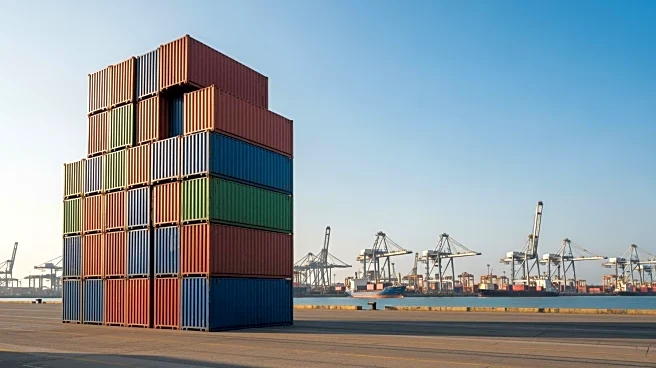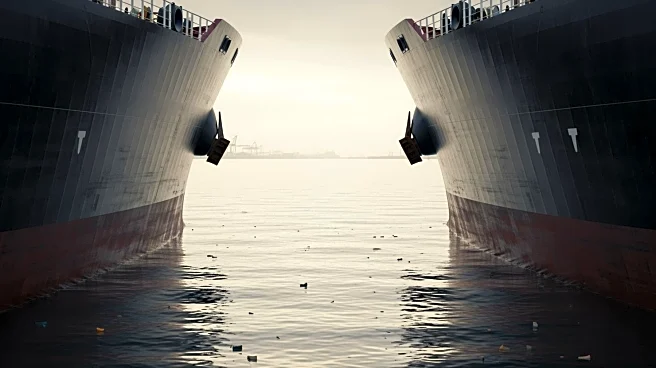What's Happening?
The cessation of Houthi militia attacks on shipping in the Red Sea could lead to a significant impact on global ocean container shipping, according to Chief Analyst Peter Sand at Xeneta. While some carriers
have begun testing the waters, the number of container ships transiting the Suez Canal has decreased throughout 2025. A largescale return to the region would reduce transport work required of the fleet and potentially cause freight rates to plummet, unless carriers take drastic measures such as idling, demolition, slow-steaming, and widespread blank sailings.
Why It's Important?
The potential return of container ships to the Red Sea could flood the market with capacity, causing freight rates to drop significantly. This would have a seismic impact on global ocean supply chains, affecting shippers and carriers worldwide. The situation highlights the importance of geopolitical stability in maintaining efficient and cost-effective shipping routes. The potential for reduced freight rates could benefit shippers but pose challenges for carriers already facing loss-making conditions.
What's Next?
Carriers may need to make contingency plans to address the potential disruption caused by a largescale return to the Red Sea. The situation requires further assurances of safety for crews, ships, and cargo, as well as insurance company confidence. The impact on freight rates and global supply chains will depend on the extent of the return and the measures taken by carriers to manage capacity.
Beyond the Headlines
The situation underscores the interconnectedness of geopolitical events and global trade. The potential for reduced freight rates may prompt discussions on the sustainability of current shipping practices and the need for innovation in logistics and supply chain management. The long-term implications for trade routes and economic stability are significant, as carriers navigate the challenges of geopolitical risks.








